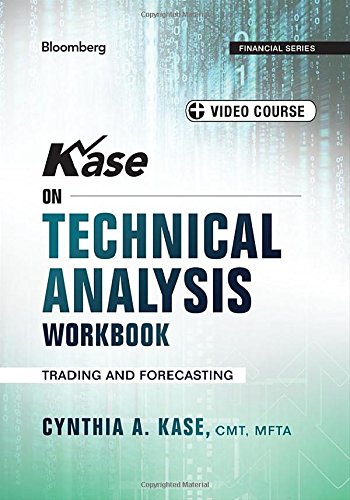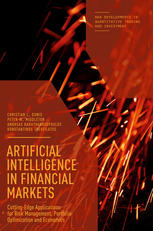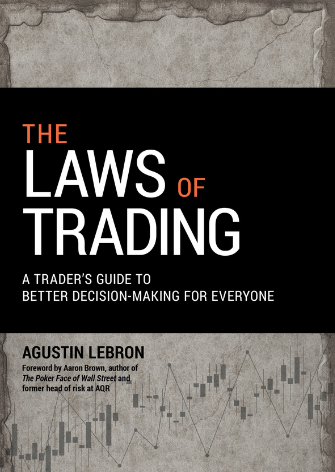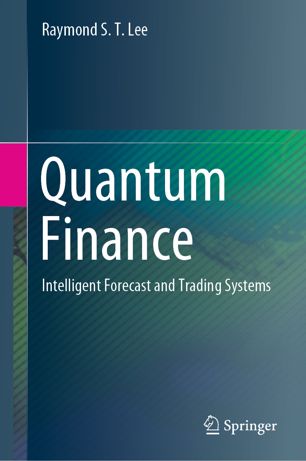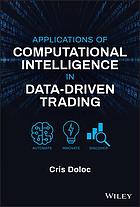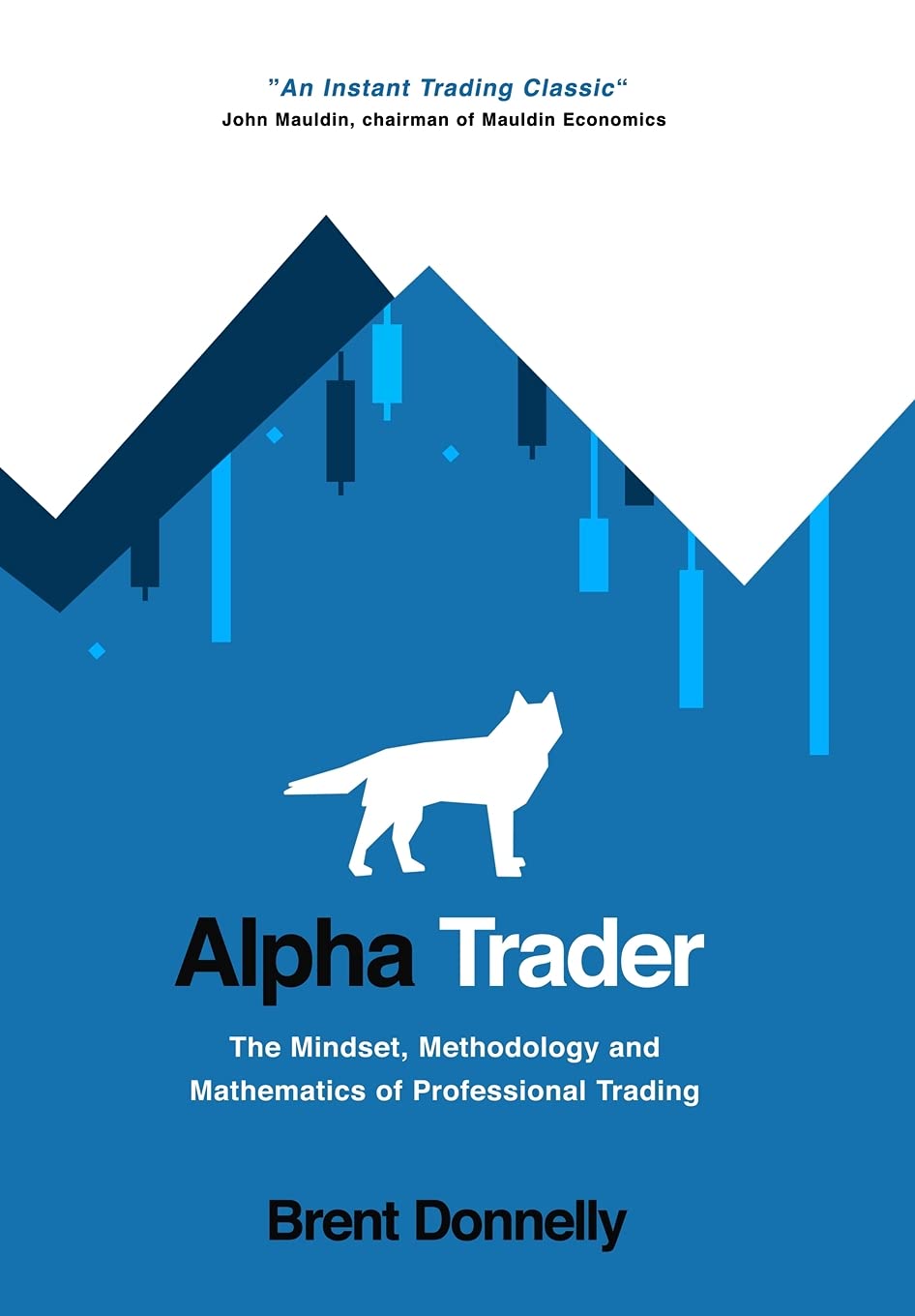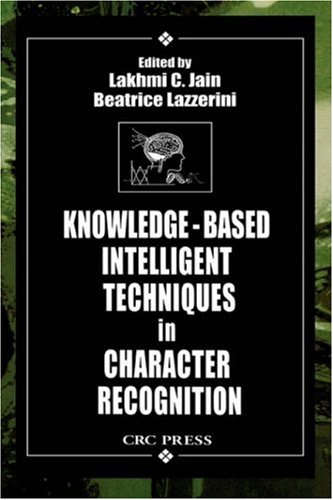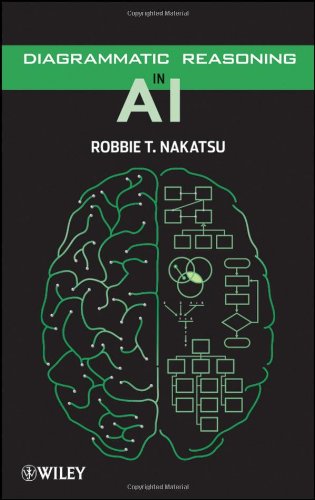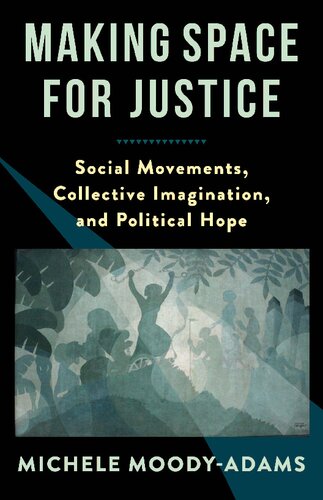موضوعات
آموزش و پرورش
ادبیات و زبان
پزشکی، دندانپزشکی و داروسازی
تاریخ و جغرافیا
داستان و رمان
دیگر
دین و فلسفه
روانشناسی
ریاضیات و آمار
سلامتی، تناسب اندام و رژیم غذایی
شیمی و پلیمر
علوم اجتماعی و حقوق
علوم زیستی و بیوتکنولوژی
فیزیک و نجوم
کامپیوتر و اینترنت
کتابهای کودکان و داستان
کسب و کار و اقتصاد
کشاورزی و دامپزشکی و غذا
معماری
مهندسی و فناوری
هنر و تئاتر
محصولات
Kase on Technical Analysis Workbook + Video Course: Trading and Forecasting - Original PDF
نویسندگان: خلاصه: Learn all you need to know about trading and forecasting with technical analysis Kase on Technical Analysis is the ultimate guide to forecasting and trading technically, a comprehensive "all you need to know" review of the topics. Award-winning instructor, Cynthia A. Kase, CMT1, MFTA2, engineer, veteran energy trader, and one of the world's preeminent market technicians, captures her 30 plus years of experience in thirteen half-hour sessions, for more than six in-depth hours on technical analysis essentials. Viewers will develop a better understanding of charting and technical indicators, and get an inside look at cutting edge material based on Kase's own unique indicators and innovative approaches to trading and forecasting. The video describes key techniques for interpreting market behavior and developing a technical approach to trading. The workbook provides practice exercises that reinforce the concepts learned as Kase guides viewers through the various methodologies and their real-life applications to successful market interactions. Technical analysis is based on the premise that the behavior of a market reveals all that is known about it. Price action, volatility and rates of price changes may be harnessed by Kase's techniques to forecast future prices, identify low risk, high reward trading opportunities, and to cut losses while letting profits run. Kase on Technical Analysis shows how it's done, providing clear and wide-ranging instruction and expert insight that helps viewers to: * Build a foundational understanding of charting and technical indicators, including an introduction to latest techniques * Learn the most important technical methods for interpreting and analyzing market behavior * Effectively apply technical analysis to trading strategy, risk management and market forecasting * Formulate entry and exit strategies by using pattern recognition and properly applying technical indicators Technical analysis is a core discipline used by successful traders to assess market conditions and time trades. This package covers the aspects of technical analysis needed for intelligent interaction with the markets, from theory to practice, with concrete guidance toward real-world application. For traders wanting to "come up to speed" on technical analysis, for those wanting a refresher on the topic, as well as for seasoned traders looking for new ideas, Kase on Technical Analysis provides deep insight from a global authority. 1 Chartered Market Technician awarded by the Market Technicians Association 2 Master of Financial Technical Analysis awarded by the International Federation of Technical AnalystsArtificial Intelligence in Financial Markets: Cutting Edge Applications for Risk Management, Portfolio Optimization and Economics - Original PDF
نویسندگان: خلاصه: As technology advancement has increased, so to have computational applications for forecasting, modelling and trading financial markets and information, and practitioners are finding ever more complex solutions to financial challenges. Neural networking is a highly effective, trainable algorithmic approach which emulates certain aspects of human brain functions, and is used extensively in financial forecasting allowing for quick investment decision making. This book presents the most cutting-edge artificial intelligence (AI)/neural networking applications for markets, assets and other areas of finance. Split into four sections, the book first explores time series analysis for forecasting and trading across a range of assets, including derivatives, exchange traded funds, debt and equity instruments. This section will focus on pattern recognition, market timing models, forecasting and trading of financial time series. Section II provides insights into macro and microeconomics and how AI techniques could be used to better understand and predict economic variables. Section III focuses on corporate finance and credit analysis providing an insight into corporate structures and credit, and establishing a relationship between financial statement analysis and the influence of various financial scenarios. Section IV focuses on portfolio management, exploring applications for portfolio theory, asset allocation and optimization. This book also provides some of the latest research in the field of artificial intelligence and finance, and provides in-depth analysis and highly applicable tools and techniques for practitioners and researchers in this field.The Laws of Trading: A Trader’s Guide to Better Decision-Making for Everyone - Original PDF
نویسندگان: خلاصه: Every decision is a trade. Learn to think about the ones you should do -- and the ones you shouldn't. Trading books generally break down into two categories: the ones which claim to teach you how to make money trading, and the memoir-style books recounting scandals and bad behavior. But the former don't have profitable trades to teach; if they did they'd keep those trades to themselves. And the latter are frequently entertaining, but they don't leave you with much you can apply in your own life.The Laws of Tradingis different. All of our relationships and decisions involve trading at some level. This is a book about decision-making through the lens of a professional prop trader. For years, behavioral and cognitive scientists have shown us how human decision-making is flawed and biased. But how do you learn to avoid these problems in day-to-day decisions where you have to react in real-time? What are the important things to think about and to act on? The world needs a book by a prop trader who has lived, breathed and taught trading for a living, drawing upon years of insights on the trading floor in real markets, good and bad, whether going sideways, crashing, or bubbling over. If you can master the decision-making skills needed to profitably trade in modern markets, you can master decision-making in all walks of life. This book will teach you exactly those skills. Introduces, develops, and applies one law per chapter, making it easy not only to remember useful concepts, but also to have them at the ready in any situation. Shows you how to find and think about the "special edge" of your organization, and yourself. Teaches you how to handle the interaction of people with artificially intelligent (AI) machines that make decisions, a skill that is rapidly becoming essential in the AI-driven economy of the future. Includes a "bonus" digital ancillary, an Excel spreadsheet with various worked examples that expand on the scenarios described in the book. Do you need to make rational decisions in a competitive environment? Almost everyone does. This book will teach you the tools that let you do your job better.Quantum Finance: Intelligent Forecast and Trading Systems - Original PDF
نویسندگان: خلاصه: With the exponential growth of program trading in the global financial industry, quantum finance and its underlying technologies have become one of the hottest topics in the fintech community. Numerous financial institutions and fund houses around the world require computer professionals with a basic understanding of quantum finance to develop intelligent financial systems. This book presents a selection of the author’s past 15 years’ R&D work and practical implementation of the Quantum Finance Forecast System – which integrates quantum field theory and related AI technologies to design and develop intelligent global financial forecast and quantum trading systems. The book consists of two parts: Part I discusses the basic concepts and theories of quantum finance and related AI technologies, including quantum field theory, quantum price fields, quantum price level modelling and quantum entanglement to predict major financial events. Part II then examines the current, ongoing R&D projects on the application of quantum finance technologies in intelligent real-time financial prediction and quantum trading systems. This book is both a textbook for undergraduate & masters level quantum finance, AI and fintech courses and a valuable resource for researchers and data scientists working in the field of quantum finance and intelligent financial systems. It is also of interest to professional traders/ quants & independent investors who would like to grasp the basic concepts and theory of quantum finance, and more importantly how to adopt this fascinating technology to implement intelligent financial forecast and quantum trading systems. For system implementation, the interactive quantum finance programming labs listed on the Quantum Finance Forecast Centre official site (QFFC.org) enable readers to learn how to use quantum finance technologies presented in the book.Applications of computational intelligence in data-driven trading - Original PDF
نویسندگان: خلاصه: "The objective of this book is to introduce the reader to the field of Computational Finance using the framework of Machine Learning as a tool of scientific inquiry. It is an attempt to integrate these two topics: how to use Machine Learning as the tool of choice in solving topical problems in Computational Finance. Readers will learn modern methods used by financial engineers and quantitative analysts to access, Read more...Alpha Trader: The Mindset, Methodology and Mathematics of Professional Trading - Original PDF
نویسندگان: خلاصه: Trading is a chaotic, complex, and loosely-structured game played by the smartest minds and most expensive computers in the world. It is the ultimate puzzle. Few can trade at an elite level for an extended period. The game is constantly changing and the rules, mechanics, and probabilities are difficult to observe and forever in flux. Just when you think you've got a plan: BAM. You get punched in the mouth. Trading attracts intelligent, driven individuals who see enormous financial rewards and few barriers to entry. But no amount of intelligence or skill is enough if you are irrational, undisciplined, or overconfident. The best analysis is useless if you keep reaching for the self-destruct button. How do you survive and excel in this high-stakes competition? How do you become an Alpha Trader? The answer is mindset, methodology, and math. ALPHA TRADER is not a behavioral economics textbook and it is not a boring, theoretical deep dive into trading psychology. It's a practical guide full of actionable information, exciting and relevant trading floor stories, concisely-distilled research, and real-life examples that explain and reinforce critical concepts. The book details the specific strategies, tactics, and habits that lead to professional trading success. It will help you become more self-aware, rational, and profitable. This book will make you a better trader. It will help you unlock more edge and it will motivate you to become an expert in your market. It covers practical and essential topics like strategy vs. tactics, microstructure, market narrative, technical analysis, sentiment, positioning and systematic risk management. It will explain the importance of adaptation, rational thinking, behavioral bias, and risk of ruin. Brent Donnelly, the author of ALPHA TRADER, has been a professional trader for more than two decades and has been writing about macro and markets for more than 15 years. His writing style is engaging, approachable, and entertaining and he has the experience and knowledge of a veteran professional trader. His first book, The Art of Currency Trading is a bestseller and has received rave reviews. Brent has worked as a senior FX dealer at some of the biggest banks in the world. He has traded global macro for a Connecticut hedge fund, and he has day traded equities with his own money. He loves trading and he loves writing about it. ALPHA TRADER is for traders of every skill and experience level. Veterans and rookies alike will benefit as the book digs into topics like self-awareness, discipline, endurance, and grit. Learn the common traits of winning traders, the myriad sources of trader kryptonite, how to improve your decision-making, and how smart people do stupid things, all the time. Professional trading is a lifelong journey of self-improvement, struggle, adaptation, and success. This book will help you level up on that journey. Be rational and self-aware. Learn, adapt, and grow. Unleash the Alpha.Knowledge-based intelligent techniques in character recognition - Original PDF
نویسندگان: خلاصه: Knowledge-Based Intelligent Techniques in Character Recognition presents research results on intelligent character recognition techniques, reflecting the tremendous worldwide interest in the applications of knowledge-based techniques in this challenging field.This resource will interest anyone involved in computer science, computer engineering, applied mathematics, or related fields. It will also be of use to researchers, application engineers and students who wish to develop successful character recognition systems such as those used in reading addresses in a postal routing system or processing bank checks.FeaturesArtificial Intelligence in Medicine: Joint European Conference on Artificial Intelligence in Medicine and Medical Decision Making, AIMDM'99 Aalborg, Denmark, June 20–24, 1999 Proceedings - Original PDF
نویسندگان: خلاصه: Updates pregnancy-specific measurement instruments for examining maternal psychosocial status Discusses substantial research on maternal prenatal stress and high-risk pregnancy This book constitutes the refereed proceedings of the Joint European Conference on Artificial Intelligence in Medicine and Medical Decision Making, AIMDM'99, held in Aalborg, Denmark, in June 1999. The 27 full papers and 19 short papers presented in the book together with four invited papers were selected from 90 submissions. The papers are organized in topical sections on guidelines and protocols; decision support systems, knowledge-based systems, and cooperative systems; model-based systems; neural nets and causal probabilistic networks; knowledge representation; temporal reasoning; machine learning; natural language processing; and image processing and computer aided design.Diagrammatic Reasoning in AI - Original PDF
نویسندگان: خلاصه: Pioneering work shows how using Diagrams facilitates the design of better AI systems The publication of Diagrammatic Reasoning in AI marks an important milestone for anyone seeking to design graphical user interfaces to support decision-making and problem-solving tasks. The author expertly demonstrates how diagrammatic representations can simplify our interaction with increasingly complex information technologies and computer-based information systems. In particular, the book emphasizes how diagrammatic user interfaces can help us better understand and visualize artificial intelligence (AI) systems. It examines how diagrammatic reasoning enhances various AI programming strategies used to emulate human thinking and problem-solving, including: Expert systems Model-based reasoning Inexact reasoning such as certainty factors and Bayesian networks Logic reasoning A key part of the book is its extensive development of applications and graphical illustrations, drawing on such fields as the physical sciences, macroeconomics, finance, business logistics management, and medicine. Despite such tremendous diversity of usage, in terms of applications and diagramming notations, the book classifies and organizes diagrams around six major themes: system topology; sequence and flow; hierarchy and classification; association; cause and effect; and logic reasoning. Readers will benefit from the author's discussion of how diagrams can be more than just a static picture or representation and how diagrams can be a central part of an intelligent user interface, meant to be manipulated and modified, and in some cases, utilized to infer solutions to difficult problems. This book is ideal for many different types of readers: practitioners and researchers in AI and human-computer interaction; business and computing professionals; graphic designers and designers of graphical user interfaces; and just about anyone interested in understanding the power of diagrams. By discovering the many different types of diagrams and their applications in AI, all readers will gain a deeper appreciation of diagrammatic reasoning.Making Space for Justice: Social Movements, Collective Imagination, and Political Hope - Original PDF
نویسندگان: خلاصه: From nineteenth-century abolitionism to Black Lives Matter today, progressive social movements have been at the forefront of social change. Yet it is seldom recognized that such movements have not only engaged in political action but also posed crucial philosophical questions about the meaning of justice and about how the demands of justice can be met. Michele Moody-Adams argues that anyone who is concerned with the theory or the practice of justice―or both―must ask what can be learned from social movements. Drawing on a range of compelling examples, she explores what they have shown about the nature of justice as well as what it takes to create space for justice in the world. Moody-Adams considers progressive social movements as wellsprings of moral inquiry and as agents of social change, drawing out key philosophical and practical principles. Social justice demands humane regard for others, combining compassionate concern and robust respect. Successful movements have drawn on the transformative power of imagination, strengthening the motivation to pursue justice and to create the political institutions and social policies that can sustain it by inspiring political hope. Making Space for Justice contends that the insights arising from social movements are critical to bridging the gap between discerning theory and effective practice―and should be transformative for political thought as well as for political activism.آیا کتاب مورد نظر هنوز بر روی سایت قرار نگرفته است؟ جای نگرانی نیست! کافی است بر روی گزینه سفارش کتاب کلیک کرده و درخواست خود را ثبت کنید. در کمتر از چند ساعت کتاب شما را آماده خواهیم کرد.
